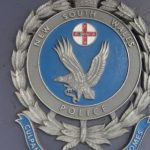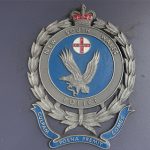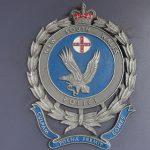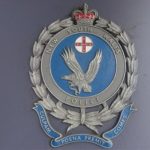NSW Police Detectives Accused of Illegally Manufacturing Prohibited Drugs
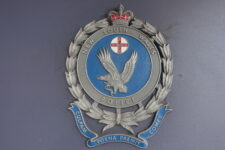
Detectives from the NSW Drug Squad were raided early last week, according to News Corp. This was in relation to allegations that members of the squad had formed their own drug syndicate, which was manufacturing illicit substances to use to entrap civilians involved in the illegal drug trade.
The raids on the homes of two senior officers were carried out by a highly secretive NSW police strike force known as Operation Dominion. It was formed last year with the aim of investigating some of the methodologies being applied by NSW detectives.
A NSW police spokesperson said she couldn’t comment on any reported raids, but confirmed that the State Crime Command had referred a matter to Professional Standards. And it appears the Law Enforcement Conduct Commission is also involved in the ongoing inquiry.
As of 2 July, no charges had been laid, and nor was there any suggestion profiteering had occurred. But, the absurdity of the same law enforcement body, known for being so gung-ho in enforcing drug laws, having allegedly been caught supplying those same substances was lost upon no one.
And while this is certainly not the first time a law enforcement agency – including our own – has been caught up in breaking the law in an attempt to enforce it, this scenario does reinforce the flaws underpinning the war on drugs, as well as feeding into recent calls to defund police.
The hot heroin debacle
In relation to the recent raids, NSW Greens MLC David Shoebridge said, “When you look at how the war on drugs corrodes pretty much everything it touches, it’s really no surprise.” But he added that “on one level”, he is “surprised that the lessons of history haven’t been learnt by NSW police”.
The Greens justice spokesperson pointed out that “during the Wood Royal Commission there were a significant number of serving police who were seconded” to work as investigators as part of the mid-90s inquiry into corruption within the NSW Police Force.
And one operation carried out by the inquiry investigators “went dreadfully wrong”. It involved “an attempt to entrap police in heroin deals in Kings Cross”. And it ended with “13 documented fatal overdoses”, as investigators supplied a dealer with an unusually high-grade batch of heroin.
Former NSW detective Michael McGann revealed the details of Operation Caesar in 2002. He named an interstate police officer, who’d been caught on tape telling an informant that the supplied heroin had to be cut, as the inquiry didn’t have the authority to sell drugs that caused overdose.
Getting high on the police supply
The Final Report of the Wood Royal Commission outlined that “perhaps the most disturbing” results of its investigation was the extent to which police “admitted to being directly involved in the supply of cocaine, heroin and cannabis”.
Most of these cases involved the recycling of illicit substances seized on the job and simply not written up. Officers then went onto supply drugs to informants in exchange for information or resold them onto known dealers.
The report details that while Kings Cross detectives had admitted to recycling seized substances and at times planting them on suspects, members of the North West Region Crime Squad admitted to conduct in relation to drugs that took things “into an entirely new dimension”.
This included one incident where $12,000 was supplied by one dealer to set up another. However, as the money was lost during the operation, the detectives cut the two ounces of seized heroin and gave a portion to the dealer who supplied the cash to cover him for his loss.
Further incidents included a detective finding some heroin in a drawer of a Drug Unit and selling it on to a Granville drug dealer, while another officer purchased drugs off one supplier to resell onto an associate, who was unable to source a reasonably priced supply at the time.
Then there was another case that involved a dealer turning in a competitor to police, so they could split the drugs that might be obtained. The officers found a pound of heroin, cut it back at the station, gave a small amount to the informant, and sold the rest onto a major dealer for $80,000.
“The amount of money and the sheer scale of the illegal drug industry means that this kind covert corruption of the criminal justice system is almost inevitable,” Shoebridge continued in reference to last week’s raids on the NSW drug detectives’ homes.
“But I had thought that the lesson had been learnt by the police not to actively engage in the drug trade,” he added.
Can’t arrest our way out
Shoebridge further posits that “the war on drugs is plainly unwinnable”. And the fact that NSW police detectives have engaged in “what on the face of it are outright criminal actions allegedly as a form of entrapment” is simply further proof that they’re fighting a losing battle.
The 2015-16 annual report of the NSW Crime Commission sets out that the prices that imported illegal drugs sell for in this country are so lucrative that offshore interests basically call the shots on what is sent over to Australia, and locals consume whatever supply is on offer.
“Commendable law enforcement efforts around the country have resulted in larger seizures and more arrests, but they have had little, if any, effect on the quantities of prohibited drugs available for consumption in Australia,” the report authors concede.
So, when the state body charged with investigating organised crime is making admissions like this, it seems clear the proposition that local police should manufacture and supply drugs to ensnare dealers makes no sense, especially when such police operations have proven fatal in the past.
“These kinds of policing operations, where the policing crosses the line into actually criminality, are an aspect of the war on drugs not just in NSW, but across the world,” Shoebridge made clear.
“It is one of the principal reasons why many outspoken former police say that the war is unwinnable and needs to end.”
Chief amongst those ex-officers speaking out about the need to end the heavy-handed law enforcement approach to illicit substances is former AFP commissioner Mick Palmer, who’s a vocal proponent in the campaign to decriminalise the personal possession and use of illegal drugs.
Defunding the police
“If ever there was a clear example of an aspect of police operations that should be defunded it is the police operation being run by the drug squad, which was actually manufacturing and distributing drugs,” Mr Shoebridge continued.
The campaign to defund police has recently grabbed global attention following the killing of African American man George Floyd by Minneapolis police, and the subsequent Black Lives Matter uprisings that swept the United States in response.
Defunding police entails divesting funds and reallocating the finances towards investment in community-based forms of ensuring public safety. Minneapolis City Council is now attempting to dismantle its police department following the death of Mr Floyd.
Current calls for investment in a drug rehabilitation centre in Dubbo are an obvious example of how defunding police could work in this state in relation to illicit drugs.
Right now, Dubbo officials have pointed out that instead of being able to access treatment, people with drug issues in their region are being dealt with via policing and the courts.
If the Berejiklian government diverted some funds from the NSW police and invested them into regional drug rehabilitation, it’s widely asserted by the experts that this would not only save lives, but taxpayers’ money as well.
“Clearly, we need a major refocus on public expenditure and a commitment to justice reinvestment so that we begin to defund these kinds of broken police operations,” Shoebridge concluded.
“And we should spend that money on rehabilitation, treatment and in addressing the root cause of poverty that underlies so much of drug addiction in NSW.”



